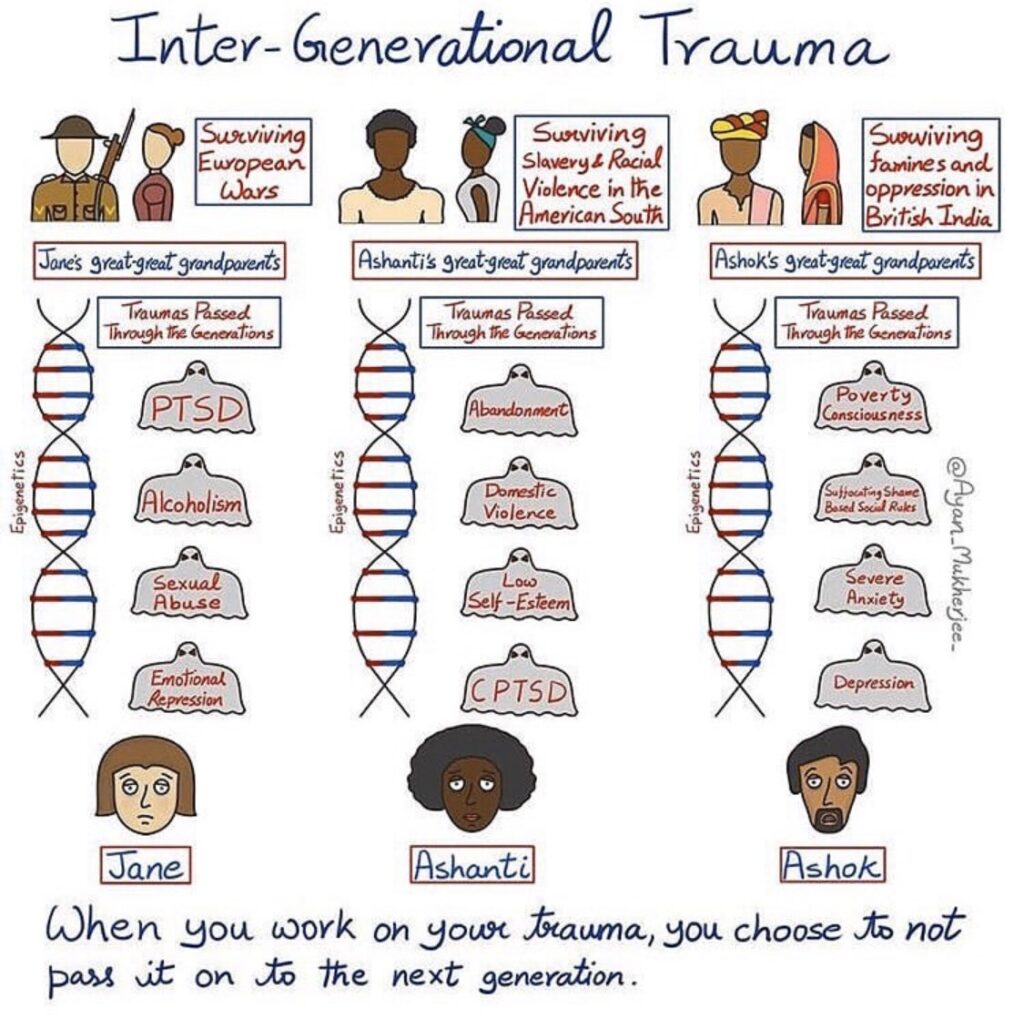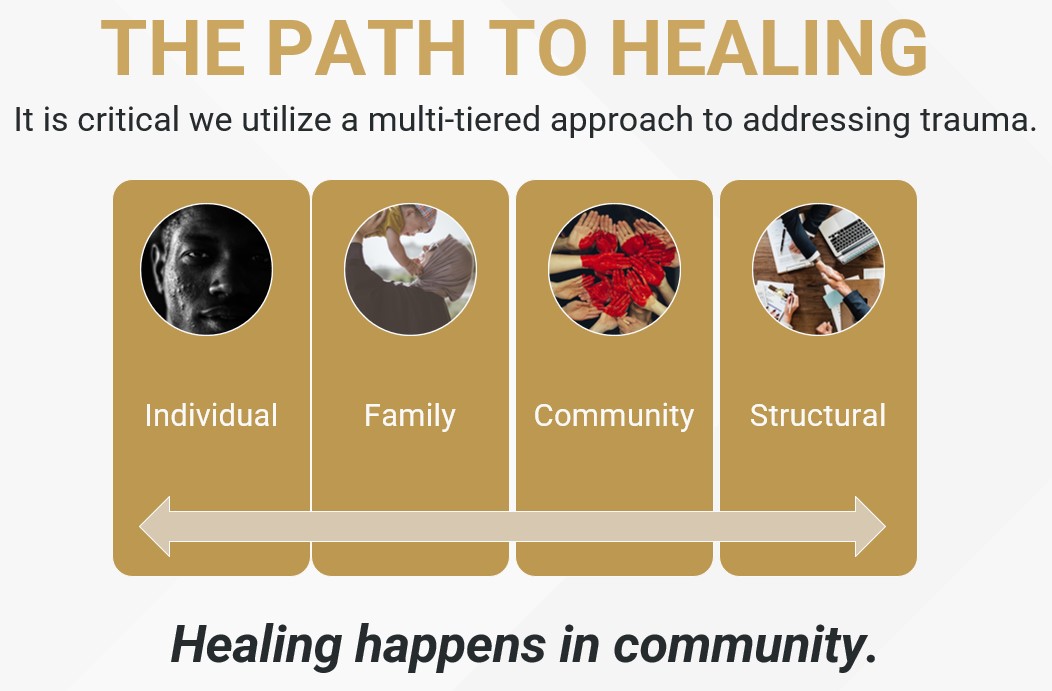
What is Historical Trauma?
Historical trauma is a form of trauma that impacts entire communities. It refers to cumulative emotional and psychological wounding, as a result of group traumatic experiences, transmitted across generations within a community (SAMHSA, 2016; Yehuda et al., 2016). This type of trauma is often associated with racial and ethnic population groups in the US who have suffered major intergenerational losses and assaults on their culture and well-being.
The legacies from the enslavement of African Americans, displacement and murder of American Indians, and Jews who endured the Holocaust have been transferred to current descendants of these groups and others. The result of these events is traumatic stress experienced across generations by individual members of targeted communities, their families, and their community. The impact is not only about what has happened in the past, but also about what is still happening in the present to target a group of people or actions by others that serve as reminders of historical targeting (Evans-Campbell, 2008). Historical trauma provides a context for understanding some of the stress responses that children from historically oppressed communities use to cope with difficult situations.


Our past still speaks to us today
Historical trauma can be used to better understand present-day reactions to events in the context of individual trauma narratives. Our experiences can have consequences that reverberate to our children or our children’s children. “This is really scary stuff. If what your grandmother and grandfather were exposed to is going to change your disease risk, the things we’re doing today that we thought were erased are affecting our great-great-grandchildren,” says Michael Skinner, a biologist at Washington State University in Pullman. If trauma can trigger such epigenetic changes in people, the alterations could serve as markers to identify individuals at greater risk for mental illness or other health problems—and as targets for interventions that might reverse that legacy.*
Because retraumatization can often occur in the context of service provision, it is critical to be mindful of a potential lack of trust in health. human service and other government services. Having cultural humility can be used to build trust, promote respect, and focus on community strengths and resilience. To achieve the best outcomes with students or clients, we have to deeply understand the race, culture, and history of the communities we are serving.


Healing from Historical Trauma
By reconnecting people to their ancestry and culture, individuals are able to process the grief of past traumas and create new historical narratives that can have healing effects. For allies, it’s important to have more discussions with communities who suffer from historical trauma and listen to how they feel their mental health needs can be better met.
“In today’s America, we tend to think of healing as something binary: either we’re broken or we’re healed from that brokenness. But that’s not how healing operates, and it’s almost never how human growth works. More often, healing and growth take place on a continuum, with innumerable points between utter brokenness and total health.”
— Resmaa Menakem
Advocating for Justice and Healing


